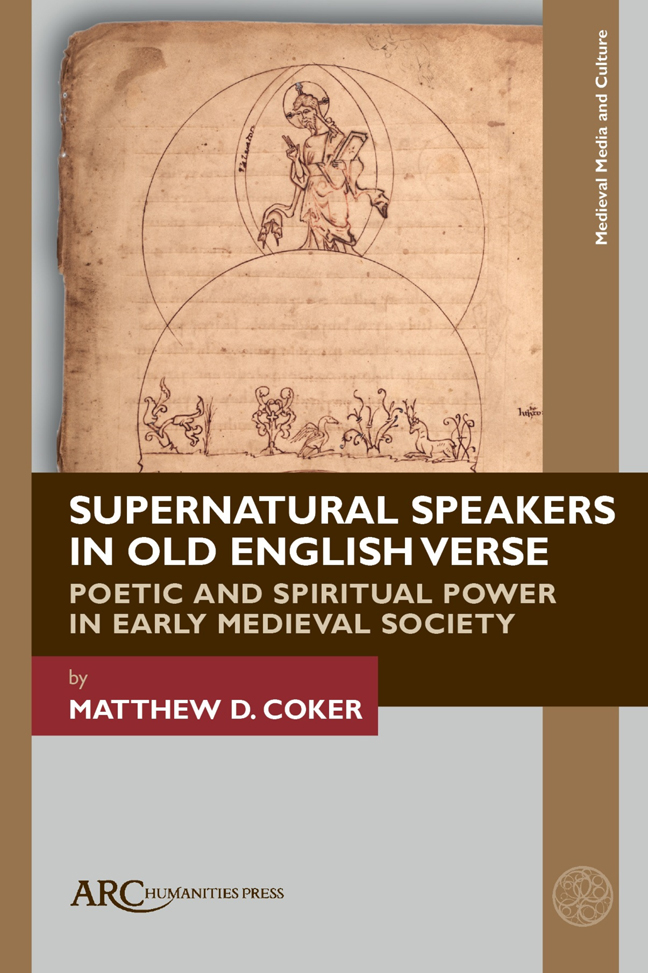Book contents
Chapter 4 - Speaking with Authority in Guthlac A
Published online by Cambridge University Press: 20 February 2024
Summary
GUTHLAC A, an Exeter Book poem of 818 lines, celebrates the life of St. Guthlac (674–714), a Fenlands hermit who takes up residence on beorge. This phrase can be translated in various ways depending on one's beliefs about the poem's action and origins, and the precise translation has been the subject of much debate, but I favour the translation of beorg as “hill.” Guthlac's goal in the deserted location is to pursue God through an ascetic path of solitude. Guthlac A, found between the Christ poems and Azarias towards the beginning of the Exeter Book, is the first of what are generally now considered two separate poems, each of which is concerned with a different aspect of Guthlac's life. Guthlac A comes first and treats mainly of Guthlac's temptation by demons, and the second, Guthlac B (traditionally lineated as lines 819–1379) concerns Guthlac's passion and death.
R. D. Fulk surmises that Guthlac A may have been composed in the first half of the eighth century, although not, of course, before Guthlac died in 714, since the poem describes his postmortem passage into glory. Various scholars have argued that the poem was a product of the tenth-century Benedictine Reform, but these arguments are unconvincing. Patrick Conner's argument for an early date, for instance, primarily relies on the poem's relationship to the Rule of St. Benedict. The evidence for this relationship seems convincing, although it does not advance an argument for a later date, since the rule was written in the early sixth-century. The parallels Conner cites between Guthlac A and Smaragdus's commentary on Benedict's Rule, a work composed between 816 and 840, are far looser and are not enough to securely link the poem to the Reform. The poet's concern for monastic orders and their right functioning could just as easily fit into the early Old English period. The 747 Council of Clovesho offers one key example of an attempt to standardize a largely disorganized, heterogenous, and ad hoc monastic system, in which corruption was rife. The Guthlac A-poet's self-conscious explanations of monastic hypocrisy fit better with such a decentralized, formative context rather than with the later reforming movement's efforts towards centralized regulation.
- Type
- Chapter
- Information
- Supernatural Speakers in Old English VersePoetic and Spiritual Power in Early Medieval Society, pp. 115 - 150Publisher: Amsterdam University PressPrint publication year: 2023

